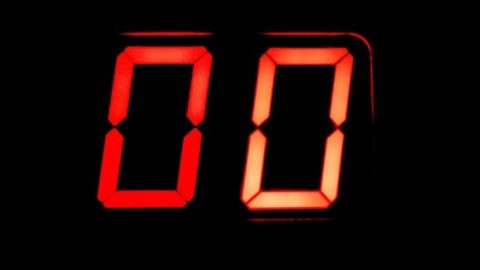The rules in English can be confusing. For every concept you think you have a handle on, countless exceptions confound things.
And the bigger problem is that these exceptions can be erratic, with no discernible pattern to speak of.
For instance, when it comes to the past tense, while the past of “side” is “sided,” the past of “ride” is “rode.” Yet, the past of “hide” is “hid.”
Now, plurals don’t behave as erratically as past tenses, yet there still are fringe cases that can be confusing.
For example, you probably came to this page because you were trying to figure out whether the plural of “zero” is “zeros” or “zeroes”?
Is it ”Zeros” or “Zeroes”?
The plural of “zero” can either be “zeros” or “zeroes,” both are correct. According to Google N-Gram Viewer, “zeros” is the more popular choice, though. On certain occasions, it is permissible to refer to multiple zeros using the singular term “zero.”
A deeper look at the plural form of “zero”
When you came here, you were looking for a definitive answer, clarifying whether you should use “zeros” or “zeroes.”
But, when it comes to English, there are plenty of cases where there is no one right answer, and the user is left to pick their preferred option.
Obviously, this only confuses matters more, making English all the more puzzling at times.
Where does all this confusion stem from?
If you were to look at how the Oxford Dictionary states that you should construct the plurals of nouns that end with an “o,” you would find the following steps.
1. In most cases, all you have to do is to add an “s” at the end of the word.
Ex. solos
2. If the word ends in a vowel followed by “o,” then you can just add an “s.”
Ex. Zoos, studios.
3. Alternatively, some words take “es” at the end rather than a simple “s.”
Ex. Dominoes, heroes, buffaloes.
4. And, some words can take either an “s” or an “es” at the end.
Ex. Cargo/Cargoes, Banjos/Banjoes
Unfortunately, the plural of “zero” falls under the final confounding category, and both “zeros” and “zeroes” are valid answers.
“Zeros” and “Zeroes” Examples (Both are correct!)
Examples
Both of the above sentences are acceptable, and you could use either form of the plural freely.
That said, we should add a little context here.
For starters, when you look up the Corpus of Contemporary American English, COCA for short, or the British National Corpus, the BNC for short, you will find that zeros is the more popular form.
To be more accurate, the Corpus of Contemporary American English says that “zeros” is almost used three times as much as “zeroes,” while the British National Corpus asserts that “zeros” is used more than 26 times than “zeroes.”
Ergo, the conclusion here is that “zeros” is the more popular option among the two in America, and in Britain, there is no room for comparison in the first place since “zeros” wins by a landslide.
Nevertheless, there are very public usages of the word “zeroes” that do merit mention. An excellent case in point can be found in Stephen Hawking’s book “A Brief History of Time.”
Using the singular “zero”
As mentioned earlier, there are cases where you can use a singular “zero” to refer to more than one zero.
Example
What’s interesting in the above example is that even though “a double zero” is a singular noun, it refers to more than one zero. However, these two zeros are treated as a single thing, the same way we treat “a pair of shoes” or “a set of kitchen knives.”
You might be wondering right about now how come we can say “double zero,” yet we also have to say “pair of socks”? Why the singular in the former but the plural in the latter?
Well, the simplest answer is that it all boils down to usage. Don’t get me wrong, people have also used both “double zeros” and “double zeroes.”
But, if you were to look at overall usage, you would find that “double zero” is more than eight times more popular than “double zeros” and that “double zeroes” isn’t even in the running.
And, since language boils down to usage, not only does “double zero” become legitimate, but it also becomes more “correct” than “double zeros” and “double zeroes.”
”Zeroes” as a verb
It is worth noting that “zero” can also be a verb. As such, it can have different meanings.
It can mean to adjust the zero of something.
Ex. They zero the scale every time before using it.
It can also mean to focus in on something or to target it.
Ex. He decided to zero in on his target.
The detective is zeroing in on a suspect.
Now, the past of “zero” is “zeroed,” and the third person singular is “zeroes.”
Examples

Hey fellow Linguaholics! It’s me, Marcel. I am the proud owner of linguaholic.com. Languages have always been my passion and I have studied Linguistics, Computational Linguistics and Sinology at the University of Zurich. It is my utmost pleasure to share with all of you guys what I know about languages and linguistics in general.

